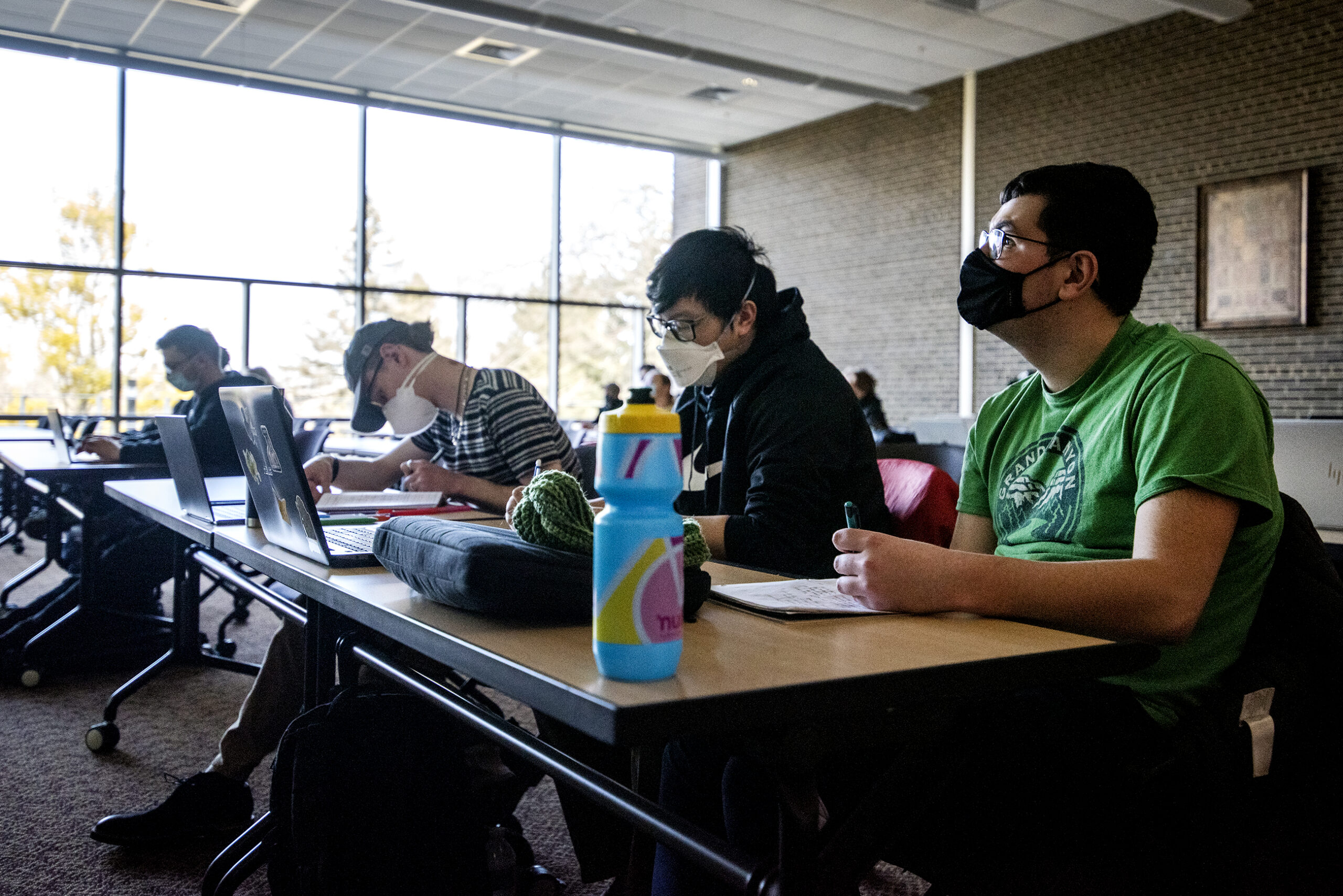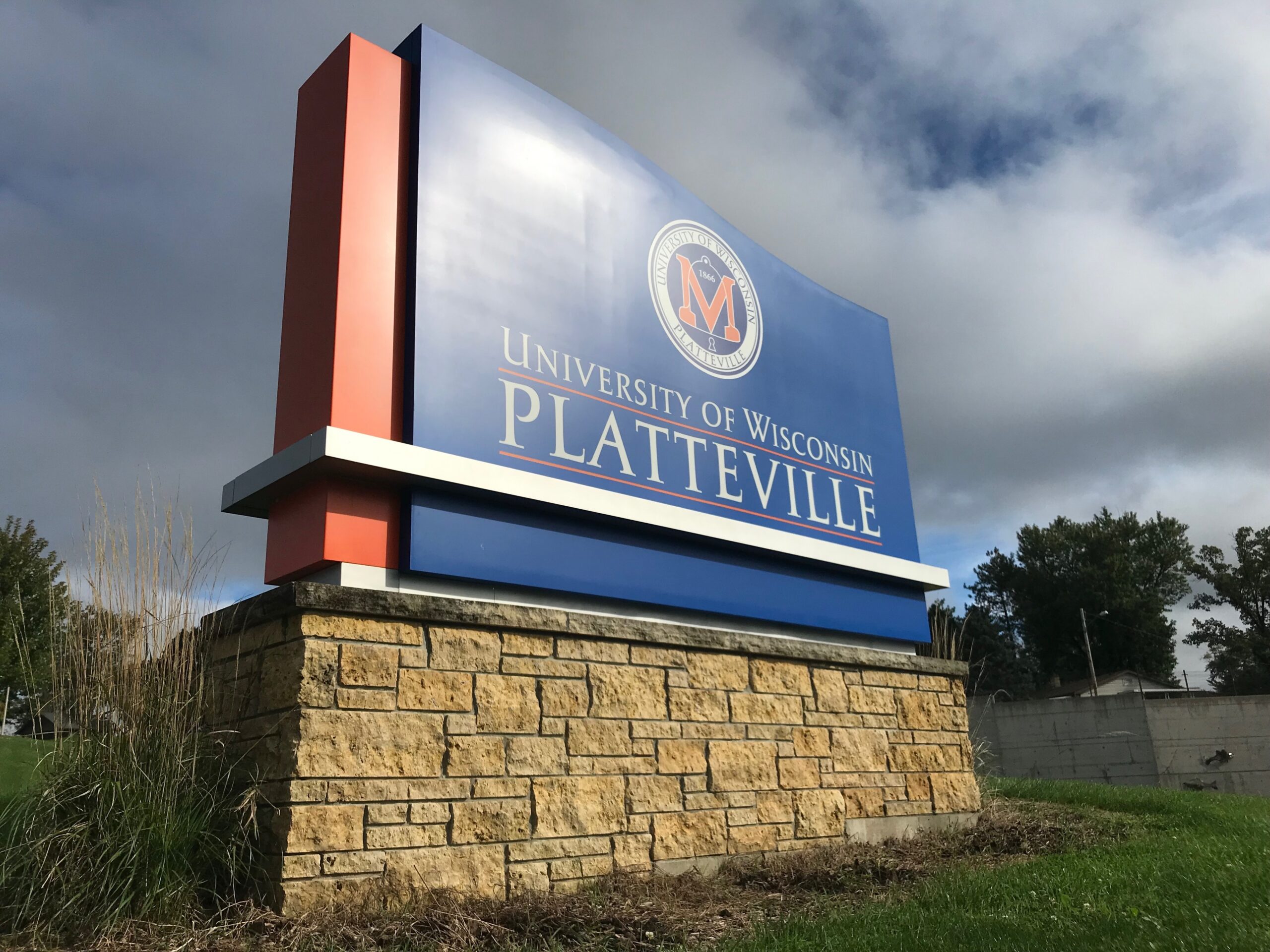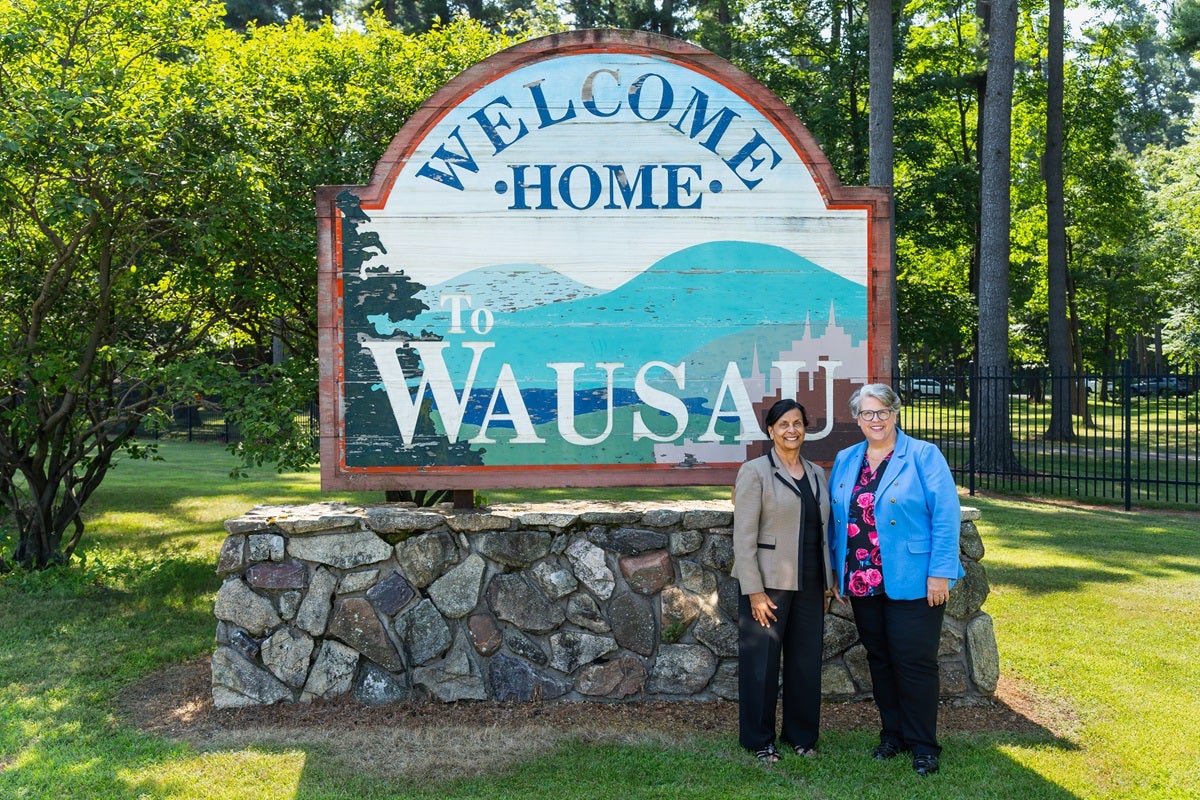Tuition at former University of Wisconsin System colleges in Marinette, Manitowoc and Sheboygan will increase by around $1,300 over four years as part of UW-Green Bay’s “One University, Four Locations” strategy.
Eight state universities were merged with what had been stand-alone two-year campuses in a 2018 UW System restructure. The restructure was meant to address declining enrollment and a $250 million cut to state funding in 2015. Each of the eight universities has taken different approaches to managing the new branch campuses.
Many four-year universities have begun offering bachelor’s degree programs at the former colleges they were paired with, which were initially designed as a lower cost way to earn associate’s degrees and transfer to four-year schools.
News with a little more humanity
WPR’s “Wisconsin Today” newsletter keeps you connected to the state you love without feeling overwhelmed. No paywall. No agenda. No corporate filter.
UW-Green Bay was the first to take a different approach. Shortly after the system’s merger, former Chancellor Gary Miller announced the creation of a “One University” model that would provide associate’s, bachelor’s and graduate degree programs at “alternate locations” in Manitowoc, Marinette and Sheboygan.
Since 2019, enrollment at those campuses has increased. At the same time, enrollment has fallen significantly at nearly every other branch campus in the state. This summer, classes will cease at UW-Platteville’s branch campus in Richland Center.
Current UW-Green Bay Chancellor Michael Alexander told Wisconsin Public Radio the merger has been great for them.
“What it did was help us to be able to provide access to more people that would not have to leave home to get their education or quit their job,” Alexander said. “You know, that it is a really important sort of Wisconsin Idea.”
But creating a “One University” model will come at a cost for some current and future students. In March, the UW System Board of Regents approved tuition increases for in-state, undergraduate students for the first time in a decade. It had been frozen since 2013.
Students attending UW-Green Bay’s schools in Manitowoc, Marinette and Sheboygan will see tuition increase from $4,750 to $5,393, or 13.5 percent, this fall. And, as part of the “One University” model, the plan is for tuition at those former two-year colleges to rise incrementally over four years until it matches the rate paid by students at the main university. Annual tuition at the university’s campus in Green Bay will be $6,767 this fall.
The increases are about fairness, said Alexander.
“If you’re a student on the Green Bay campus and you’re sitting in a class with students from one of the other locations, and you have the same professor who’s credentialed exactly the same way, and half of the students are paying one rate and the other half is paying the other, I don’t know why that’s fair,” Alexander said.
To boost financial aid options for students at all locations, Alexander said, foundations that supported the former colleges have been merged with the one supporting the university.
And while associate’s degrees will still be an option for students at campuses outside Green Bay, Alexander said they’re pivoting away from them. Instead, he said, they’re working with local school districts through UW-Green Bay’s Rising Phoenix dual enrollment initiative allowing high school students to earn their associate’s degree before graduation.
Alexander also said area technical colleges are playing an important role in boosting access to associate’s degree offerings to students in northeastern Wisconsin at a lower cost than the former colleges did.
“So, we are not really solving the problem by having an intermediary option that is slightly less expensive than what it currently is on the Green Bay campus and slightly more expensive, not by much, than what it is at the technical college,” Alexander said.
Representative’s of UW-Green Bay’s Student Government Association did not immediately respond to requests for comment.
UW-Green Bay is still working out how much additional revenue will be generated by the tuition increases in Manitowoc, Marinette and Sheboygan. Alexander said administrators will work with student government groups in those communities to determine how the money could be used for things like student services or additional course offerings.
Alexander said he’s proud enrollment has ticked up at the former colleges over the past three years, but what matters most is that total enrollment at UW-Green Bay grows.
“If that number keeps going up and more students from Marinette, Manitowoc and Sheboygan (and) the surrounding areas are getting a university degree or having a university experience, then we’ve won,” Alexander said.
Wisconsin Public Radio, © Copyright 2025, Board of Regents of the University of Wisconsin System and Wisconsin Educational Communications Board.







